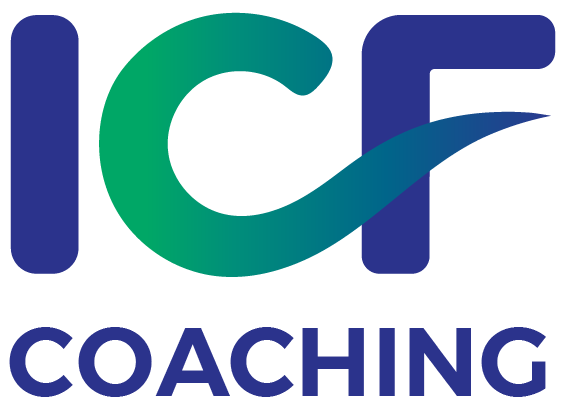Table of Contents
ToggleICF Coaching, Certification, and Cost: Everything You Need to Know
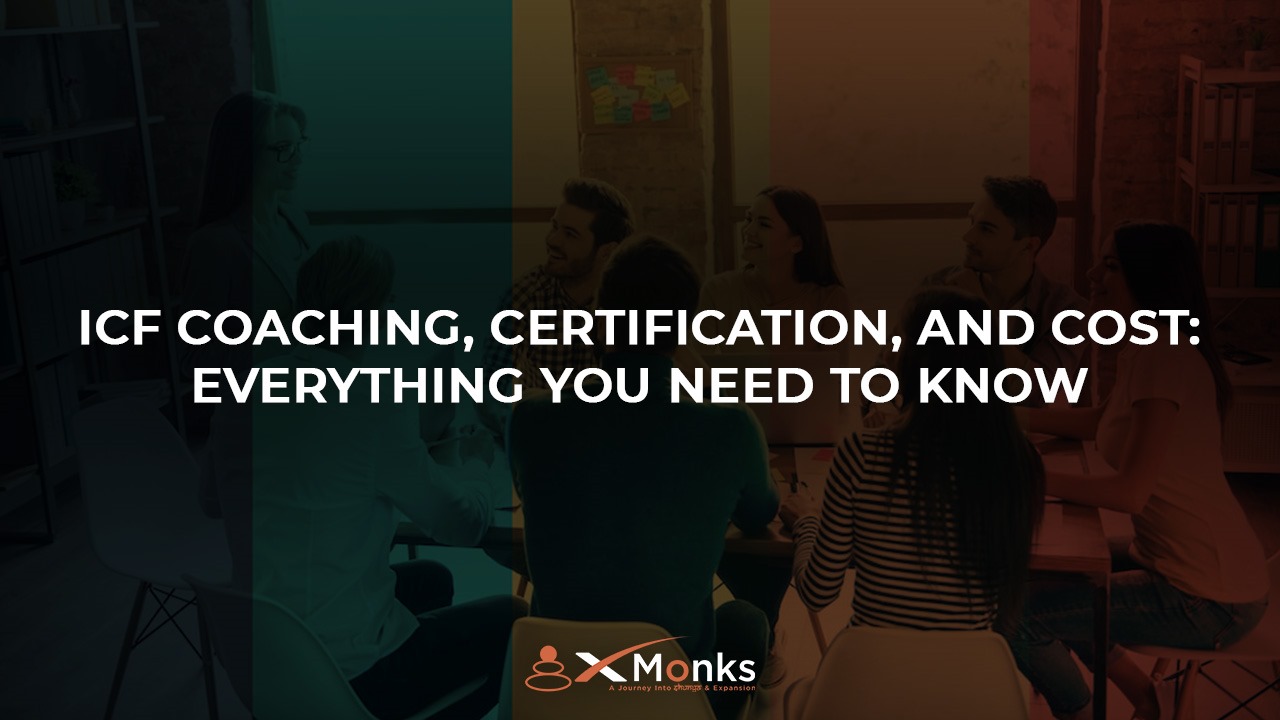
What is ICF Coaching?
Definition and Purpose
ICF coaching refers to coaching practices and methodologies that adhere to the standards and ethical guidelines set by the International Coaching Federation. Founded in 1995, the ICF is a global organisation dedicated to advancing the coaching profession by setting high standards, providing independent certification, and building a worldwide network of trained coaching professionals.
History and Background
The ICF emerged during a time when the coaching profession was gaining momentum but lacked standardisation. The founders of ICF recognised the need for a governing body to establish clear ethical guidelines and certification processes to ensure the quality and consistency of coaching services globally.
Its Key Principles Include
Keeping in line with its motto to ensure the ‘gold standard in coaching’, ICF coaching is grounded in several core principles, including a strong commitment to professionalism, a focus on continuous learning and development, adherence to ethical standards, and a dedication to improving client outcomes. These principles help ensure that ICF-certified coaches are well-equipped to facilitate meaningful and effective coaching engagements.
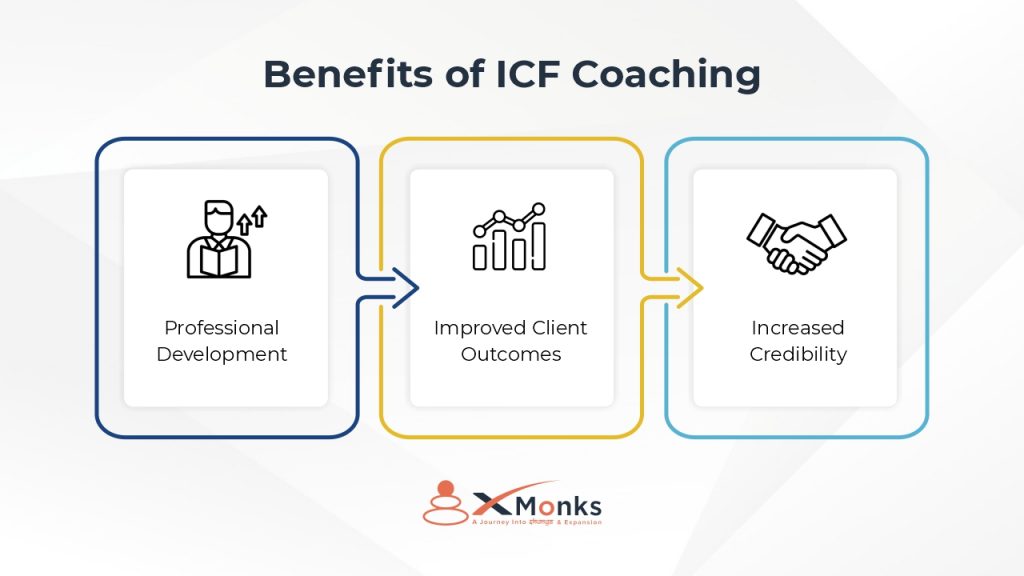
Benefits of ICF Coaching
Professional Development
Becoming an ICF-certified coach with us opens up numerous opportunities for professional growth. It provides a structured path for acquiring the necessary skills and knowledge, enhancing your coaching abilities, and positioning you as a credible professional in the field.
Improved Client Outcomes
ICF coaching emphasises a client-centred approach, which has been shown to yield better results. Coaches who follow ICF guidelines are trained to create a supportive environment that empowers clients to achieve their personal and professional goals effectively. Thus, ICF seeks to create coaches who can enable their clients to be the solutions to their own problems.
Increased Credibility
Due to the high and rigorous standards shown by ICF Coach Certification Programs coupled with the results that their coaches continue to deliver, holding an ICF certification is a mark of excellence recognised worldwide. It signifies that a coach has met rigorous standards and adheres to a code of ethics, which can enhance your reputation and attract more clients.
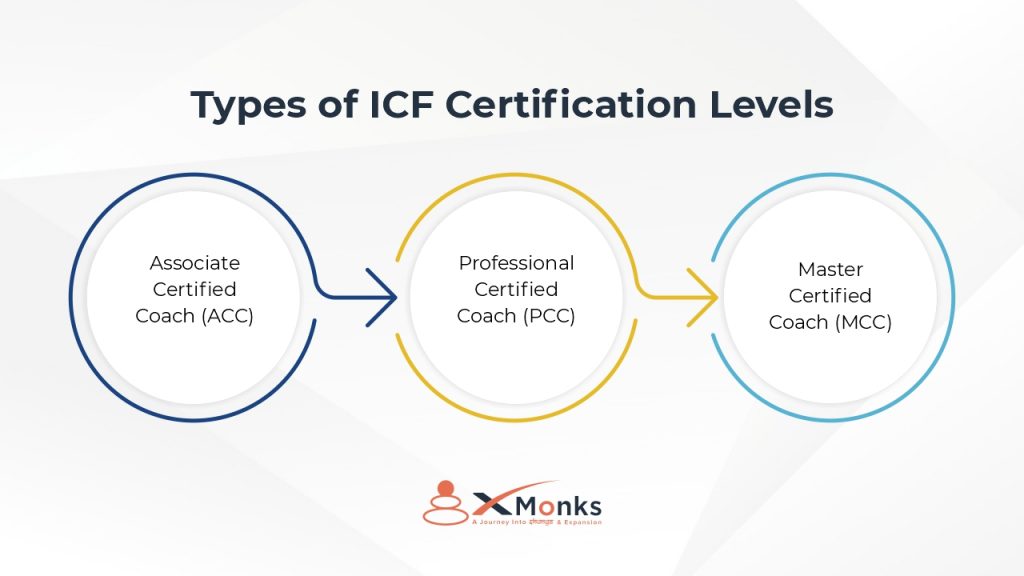
ICF Coach Certification
What is ICF Certification?
The ICF certification is an official recognition that a coach has met the stringent standards set by the International Coaching Federation. It involves rigorous training, extensive coaching experience, and a commitment to ongoing professional development. Any professional or individual, who seeks to undertake ICF coaching must also display the same levels of commitment.
Types of ICF Certification Levels
Associate Certified Coach (ACC)
The ACC is the entry-level certification for coaches who are beginning their professional journey. It requires a minimum of 60 hours of coach-specific training, 100 hours of coaching experience, and passing a performance evaluation.
Professional Certified Coach (PCC)
The PCC is the next level and is aimed at more experienced coaches. To achieve PCC certification, you need at least 125 hours of coach-specific training and 500 hours of coaching experience. You must also pass a performance evaluation and a written exam.
Master Certified Coach (MCC)
The MCC is the highest certification level offered by the ICF. It requires a minimum of 200 hours of coach-specific training and 2,500 hours of coaching experience. In addition, candidates must pass a performance evaluation and a written exam. The MCC is reserved for the most experienced and skilled coaches.
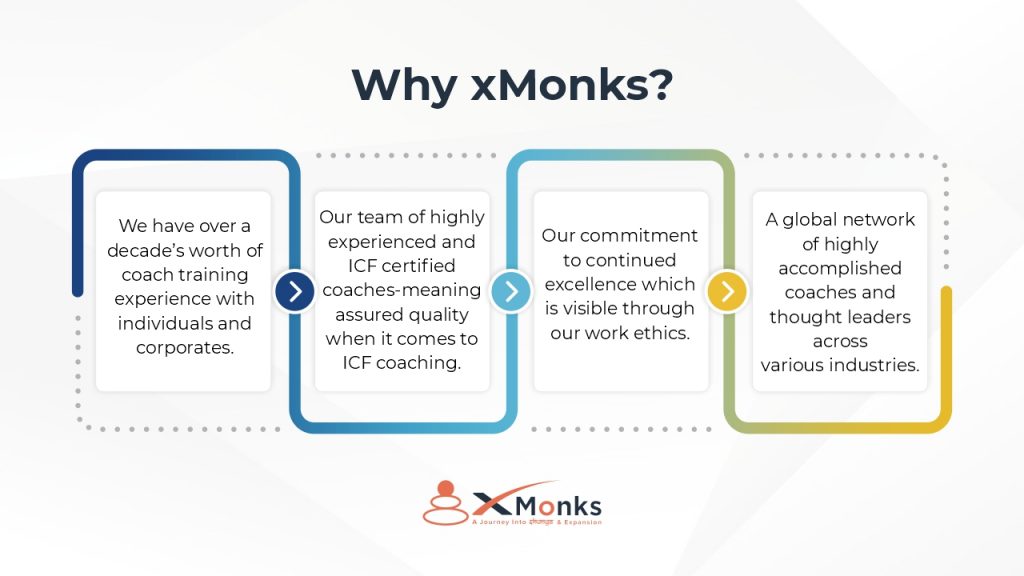
ICF Coach Certification Process
Eligibility Requirements
To be eligible for ICF certification, candidates must meet specific training and experience requirements. This includes completing an accredited coach training program and accumulating a certain number of coaching and mentoring hours.
Training Programs
ICF offers various accredited training programs that provide the necessary education and practical skills required to obtain the ICF Certification. Such programs are designed to cover essential coaching competencies, ethical guidelines, and effective coaching techniques.
Application Process
The application process for ICF certification involves submitting proof of completed training, documented coaching experience, and passing the required exams and performance evaluations. The process is thorough and the evaluation is strict- as it is designed to ensure that only qualified candidates receive certification. To be a part of the ICF Coaching community is no mean feat in itself!
ICF Coach Certification Cost
Breakdown of Costs
The cost of ICF certification can vary depending on several factors, including the level of certification and the specific training program. Generally, you can expect to pay for the training program, application fees, and exam fees. For example, the costs might include:
- Training programs: $2,000 to $10,000 (starting from 1.7 lakh indian rupees and going upwards)
- Application fees: $300 to $775
- Exam fees: Included in application fees or separate
Comparison with Other Certifications
Compared to other coaching certifications, the ICF coach certification is considered a worthwhile investment due to its global recognition and the rigorous standards it upholds. While it may be more expensive than some other certifications, the value and credibility it offers make it a preferred choice for many professionals. Additionally, the ICF Certification Cost guarantees excellent returns because the tag of an ICF coach is bound to connect you to the globally spread and recognised ICF community. Imagine being an alumni of such a prestigious organisation!
Value for Money
Despite the costs, many coaches find that ICF certification pays off in the long run through increased client trust, higher rates, and more significant professional opportunities. The comprehensive training and support provided by ICF programs also contribute to the overall value.
Choosing the Right ICF Training Program
Accredited Training Programs
When selecting a training program, it’s crucial to choose one accredited by the ICF (read- xMonks!). These programs have been evaluated and meet the high standards set by the ICF, ensuring that you receive quality education and training.
Factors to Consider
Consider factors such as the program’s curriculum, delivery method (online or in-person), duration, and cost. Additionally, research the program’s reputation, faculty qualifications, and alumni success stories.
Tips for Selecting a Program
- Check the program’s alignment with your career goals.
- Ensure the program offers sufficient practice and mentoring opportunities.
- Verify the program’s accreditation status with the ICF.
We are extremely happy and proud to announce that xMonks ticks all the boxes when it comes to ICF Coaching. Here’s why you should choose xMonks on your ICF Coaching journey-
- We have over a decade’s worth of coach training experience with individuals and corporates.
- Our team of highly experienced and ICF certified coaches- meaning assured quality when it comes to ICF coaching.
- Our commitment to continued excellence which is visible through our work ethics.
- A global network of highly accomplished coaches and thought leaders across various industries.
Preparing for ICF Coach Certification
Study Tips
Preparing for the ICF coach certification requires dedication and effective study strategies. We would advise you to create a study schedule, use a variety of learning resources, and join study groups to enhance your understanding of the material. ICF coaching will take up some time of your day and needs to be carefully planned in accordance with your professional life. (if it needs to be)
Practice and Mentoring
Hands-on practice and mentoring are critical components of preparing for the ICF coach certification. Engage in regular coaching sessions (ensure a mixture of pro-bono and paid sessions as ICF coaching demands both), seek feedback from experienced mentors, and continuously refine your skills.
Resources and Support
Take advantage of the resources offered by the ICF and other professional organisations. These may include study guides, online courses, webinars, and support groups that can aid in your preparation.
Maintaining ICF Coach Certification
Continuing Education Requirements
ICF-certified coaches are required to engage in continuing education to maintain their certification. This ensures that coaches stay current with industry trends and continue to develop their skills.
Renewal Process
The renewal process involves documenting your continuing education activities and coaching experience. Coaches must submit this documentation to the ICF and may need to pay a renewal fee.
Keeping Up with Industry Changes
Staying informed about changes in the coaching industry is essential for maintaining your ICF certification. Regularly read industry publications, attend workshops and conferences, and participate in professional development activities.
Challenges in ICF Coaching and Certification
Common Obstacles
Common challenges include balancing the demands of certification with other professional and familial responsibilities, staying motivated, and managing the financial costs of training and certification.
Solutions and Strategies
Develop a clear plan for your certification journey, seek support from peers and mentors, and explore financial aid or payment plans offered by training programs. Staying organised and focused can help you overcome these challenges.
Hearing from coaches who have successfully travelled the path of ICF coaching can also be inspiring and may just be the tonic you need when your coaching journey stalls or hits a roadblock. Many coaches are only too happy to share how the ICF coach certification has transformed their careers, increased their client base, and enhanced their coaching effectiveness.
Impact of ICF Coach Certification
The ICF coach certification has a profound impact on both coaches and their clients. Certified coaches report higher levels of satisfaction, confidence, and client success, demonstrating the value of the certification process. Clients, on their end, report a higher degree of trustworthiness in the coach carrying the badge of ICF coaching.
Who can pursue ICF coaching?
The short answer is that anyone can obtain the ICF coach certification. Individuals from all industries may use this credential to boost their professional standings and aspiring coaches can, of course, improve their reach and visibility. However, below is list of people who should definitely pursue ICF coaching:
- All aspiring and practising coaches.
- Managers and other entry level leaders who want to add coaching to their leadership toolkit
- An established C-suite leader looking to diversify.
- Women (or others) on career breaks looking to relaunch themselves; keeping their horizons wide
- Any professional involved with learning and development within an organisation.
The Future of ICF Coaching
Trends and Predictions
The coaching industry continues to evolve, with increasing demand for specialised coaching services and a growing emphasis on evidence-based practices. ICF coaching is expected to adapt and lead these changes, maintaining its position as a gold standard in the industry.
Evolution of Coaching Standards
As the industry evolves, so too do the standards set by the ICF. The organisation is committed to continuously improving its certification processes and ethical guidelines to reflect the latest research and best practices in coaching.
Comparing ICF with Other Coaching Certifications
ICF vs. Non-ICF Certifications
While there are many coaching certifications available, ICF certification is often preferred due to its rigorous standards, ethical guidelines, and global recognition. Other certifications may vary in terms of credibility, cost, and requirements.
Pros and Cons
ICF certification’s pros include its high standards, comprehensive training, and widespread recognition. However, the cons may include the cost and time required to achieve certification. Weigh these factors based on your personal and professional goals; in the long run the pros outweigh the cons comfortably.
FAQs about ICF Coaching and ICF Coach Certification :
1. What is the duration of ICF certification training programs?
2. Can I take ICF certification programs online?
3. How do I maintain my ICF certification?
4. Is ICF certification worth the cost?
5. What are the prerequisites for ICF certification?
Conclusion
ICF coaching and ICF coach certification offer a pathway to professional excellence in the coaching industry, in spite of the associated costs. The rigorous standards, comprehensive training, and global recognition associated with ICF coaching make their certification a valuable credential for any aspiring coach. While the journey to certification requires dedication and investment, the rewards in terms of career growth, client success, and professional credibility are well worth the effort. Whether you’re just starting or looking to advance your coaching career, ICF coach certification can help you achieve your goals and make a meaningful impact in the lives of your clients.
If you have reached till here, contact us now!
